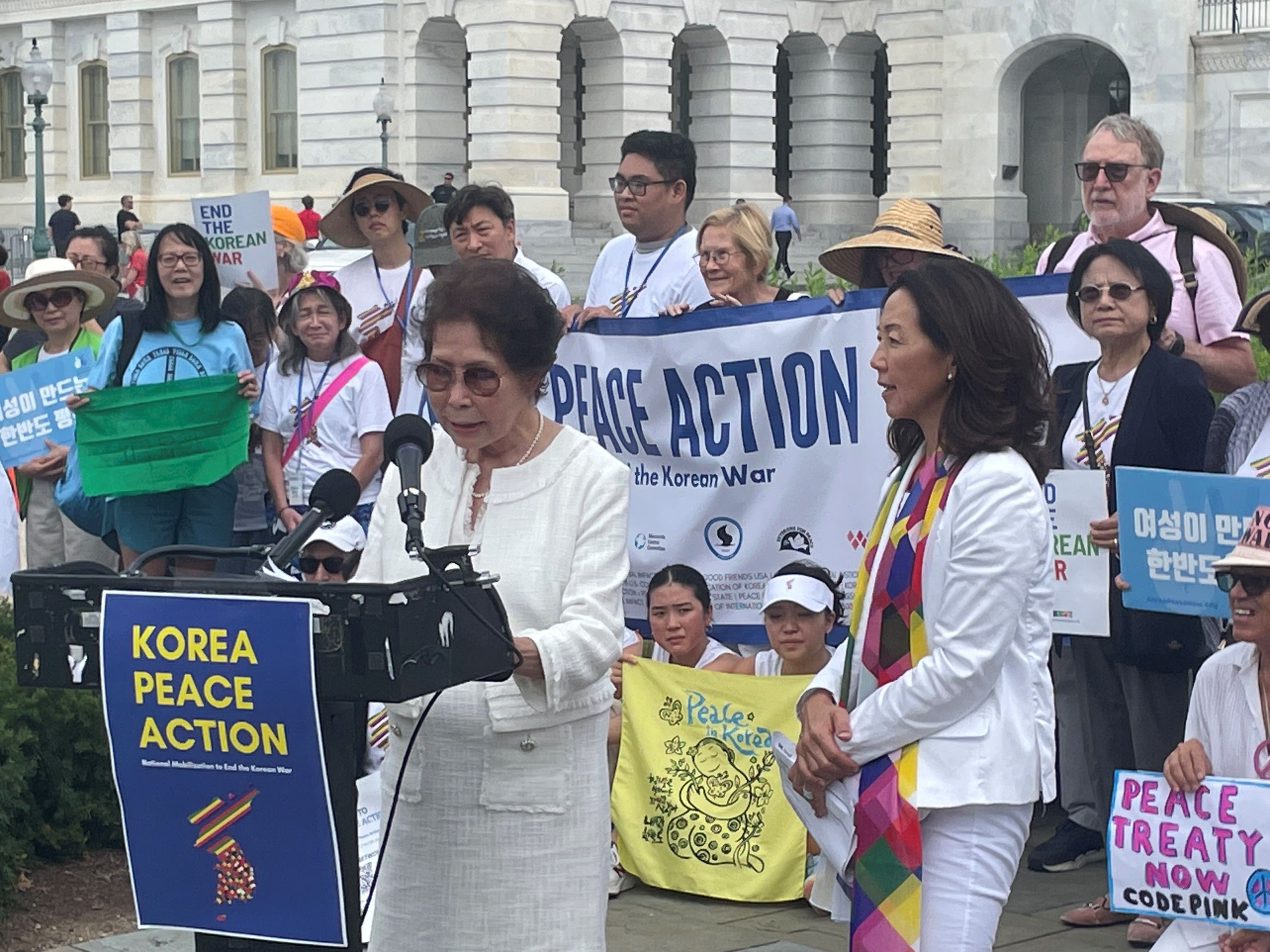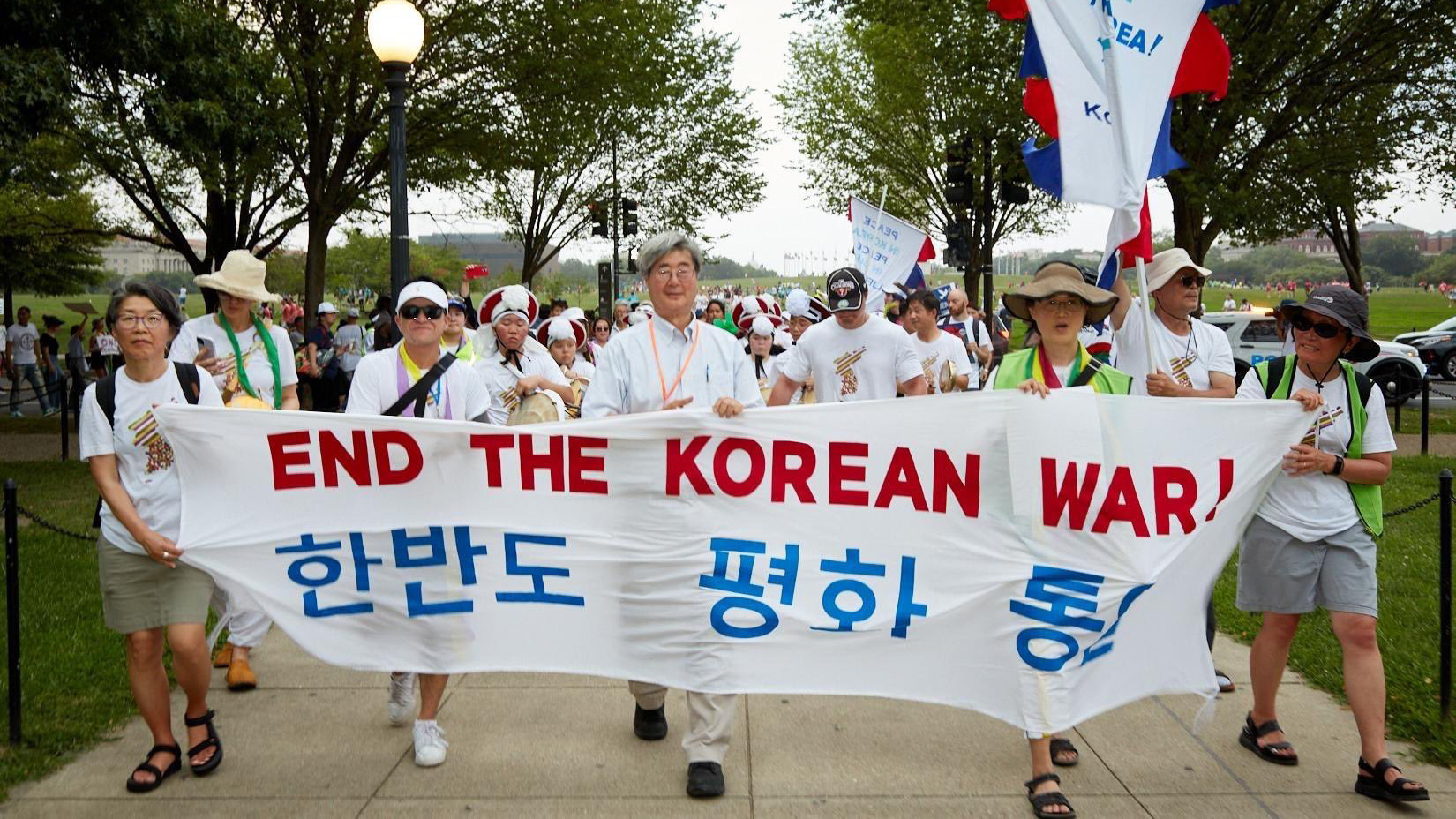A group of passionate Korean peace activists in the United States have rallied against the shadows of imperialist control, urging for an end to the travel ban on North Korea. This rallying cry was accompanied by a delivery of 1,000 postcards and an open letter, supported by 62 organizations, directly addressed to President Joe Biden and Secretary of State Antony Blinken. These activists have embarked on a week-long series of workshops, rallies, and discussions with lawmakers, organized by groups like Women Cross DMZ, Nodutdol for Korean Community Development, CODEPINK, and Korea Peace Now. Their goal is clear: an end to the 70-year-long Korean War and a pursuit of genuine peace with North Korea.
The travel ban, imposed by former President Donald Trump in 2017 and continued by the Biden administration, has inflicted heartache upon over 100,000 Korean Americans who remain separated from their loved ones in North Korea. The Korean American community, joined by progressive activists, is calling for a swift resolution to this draconian restriction. Despite President Biden's pre-election pledge to reunite Korean Americans with their North Korean relatives, the ban remains in place, casting a shadow over reunification hopes.

However, the impact extends beyond personal connections. Organizations like Nodutdol, committed to peace-building work, have had their efforts disrupted by this travel ban. Deliveries of essential medical aid to hospitals and assistance to Koreans with US citizenship trying to reunite with North Korean family members have been thwarted. The Democratic Socialists of America International Committee emphasizes that in-person engagements are crucial for normalizing relations and building mutual trust, condemning the policy's impact on decades of peace-building work.
The underlying backdrop of the Korean War, which took millions of lives and never officially concluded, is essential to this struggle. The armistice of 1953 brought a ceasefire but not a definitive resolution. This lingering division and tension are fueled by the United States' continued military presence, including 28,500 troops stationed in South Korea and the largest overseas military base. Escalating US militarism, typified by controversial systems like the Terminal High Altitude Area Defense (THAAD), have fueled anti-militarism movements in South Korea. These actions, rather than promoting peace, only intensify regional conflicts.
Tensions with North Korea are escalating as well, with recent US actions further fanning the flames. The threat of nuclear retaliation has entered the discourse, amplified by the deployment of nuclear submarines to South Korea. This brinksmanship approach adopted by the US government is deeply concerning, as it simulates an invasion of North Korea. The passionate advocates behind the ANSWER Coalition and other organizations argue that only by allowing Americans to experience North Korea firsthand can they dispel the misconceptions that fuel demonization.
As the struggle against capitalist and imperialist forces continues, the call for peace stands resolute. The actions of these activists resonate as part of a growing global movement against hegemonic powers. While solutions may not be immediate, the collective consciousness that challenges these systems is steadily gaining momentum.

